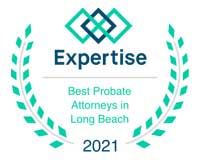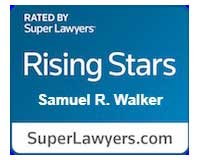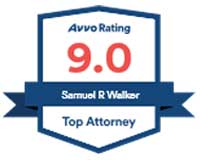Malpractice Defense Attorney Serving Los Angeles & Orange County
Preserving Legacies, Shielding Reputations: Your Malpractice Defense Guardian.
Walker Law Corporation
Compassionate and Strategic Representation for Malpractice Defense
At Walker Law Corporation, we understand that malpractice in the legal, medical and other professional industries can be a stressful time with severe consequences for our client’s and their families. When obtaining legal guidance from us, we will thoroughly examine the evidence and help you determine the best path forward to ensure an appropriate course of legal action or settlement for you and your loved ones.
If you or a loved one believe that you have received substandard care from any professional and you would like to learn more about your legal rights and the possibility of seeking compensation for your loss/injuries you may contact us for a free consultation. Time is of the essence and there are applicable time limits which will prevent you from initiating legal action if you do not contact at attorney in time to file your claim before the expiration of the Statute of Limitations.
Our Strategic Approach to Malpractice Defense and Professional Protection
In our approach to Malpractice Defense, we stand as staunch advocates, crafting strategic defenses to shield professionals against potential damage to their reputations and careers.
Our seasoned team understands the nuances of malpractice claims, offering a meticulous and proactive approach to investigate, analyze, and address allegations with precision.
We prioritize collaboration with our clients, fostering open communication to comprehensively understand the intricacies of each case and develop tailored defense strategies.
Recognizing the stressful nature of malpractice accusations, our attorneys work diligently to provide responsive and timely legal counsel, guiding professionals through the complexities of the defense process.
With an unwavering commitment to excellence, we leverage our deep expertise to challenge claims, protect professional licenses, and advocate fiercely to secure favorable outcomes for our clients in the realm of Malpractice Defense.
Understanding Malpractice and Your Legal Rights in California
Attorney Malpractice in Los Angeles or Orange County occurs when an attorney commits and act which is negligent or grossly negligent. Attorney malpractice can occur even if you were not part of a lawsuit and were merely relying on the attorney for advice.
Attorney malpractice based upon gross negligence is malpractice of an egregious sort such as would be evident if the attorney missed a deadline or allowed the statute of limitations to run beyond the date in which you could file your claim. Similarly, and more common but less obvious in nature is malpractice as a result of negligence. Negligence is evident if the attorney’s error caused harm or prevented you from pursuing a lawsuit or a particular cause of action.
Attorney malpractice as a result of negligence would also be evident if the attorney failed to conduct a thorough discovery on your behalf and thereby missed crucial evidence which would have assisted in proving your case. Attorney malpractice could also include negligence errors committed during trial such as failures to object when appropriate, failure to make the appropriate objection, failure to present evidence, failure to properly question witnesses or a general lack of preparation which is evident based on the transcript of the proceedings.
Attorney malpractice can also be established by proof that the attorney filed documents on your behalf which included erroneous legal arguments, or which fail to set forth the relevant legal standard with particularity.
The Statute of Limitations for filing an attorney malpractice claim are set forth under Cal Code Civ Proc § 340.6 as follows:
(a) An action against an attorney for a wrongful act or omission, other than for actual fraud, arising in the performance of professional services shall be commenced within one year after the plaintiff discovers, or through the use of reasonable diligence should have discovered, the facts constituting the wrongful act or omission, or four years from the date of the wrongful act or omission, whichever occurs first. If the plaintiff is required to establish his or her factual innocence for an underlying criminal charge as an element of his or her claim, the action shall be commenced within two years after the plaintiff achieves post-conviction exoneration in the form of a final judicial disposition of the criminal case. Except for a claim for which the plaintiff is required to establish his or her factual innocence, in no event shall the time for commencement of legal action exceed four years except that the period shall be tolled during the time that any of the following exist:
(1) The plaintiff has not sustained actual injury.
(2) The attorney continues to represent the plaintiff regarding the specific subject matter in which the alleged wrongful act or omission occurred.
(3) The attorney willfully conceals the facts constituting the wrongful act or omission when such facts are known to the attorney, except that this subdivision shall toll only the four-year limitation.
(4) The plaintiff is under a legal or physical disability which restricts the plaintiff’s ability to commence legal action.
(b) In an action based upon an instrument in writing, the effective date of which depends upon some act or event of the future, the period of limitations provided for by this section shall commence to run upon the occurrence of that act or event. (Cal Code Civ Proc § 340.6)
Recognized for Excellence in Malpractice Defense Representation





Schedule Your Free 15-Minute Malpractice Defense Consultation Today
At Walker Law Corporation, we recognize the critical nature of swift and strategic action in Malpractice Defense cases, which is why we offer complimentary consultations. These sessions provide a confidential space for professionals to discuss their concerns, allowing our experienced attorneys to offer initial insights, evaluate the situation, and outline potential defense strategies—all without any upfront financial commitment.
Visit Our Offices in Los Angeles & Orange County for Malpractice Defense Support
Newport Beach Law Office
Newport Beach, CA 92660
Long Beach Law Office
Long Beach, CA 90802
